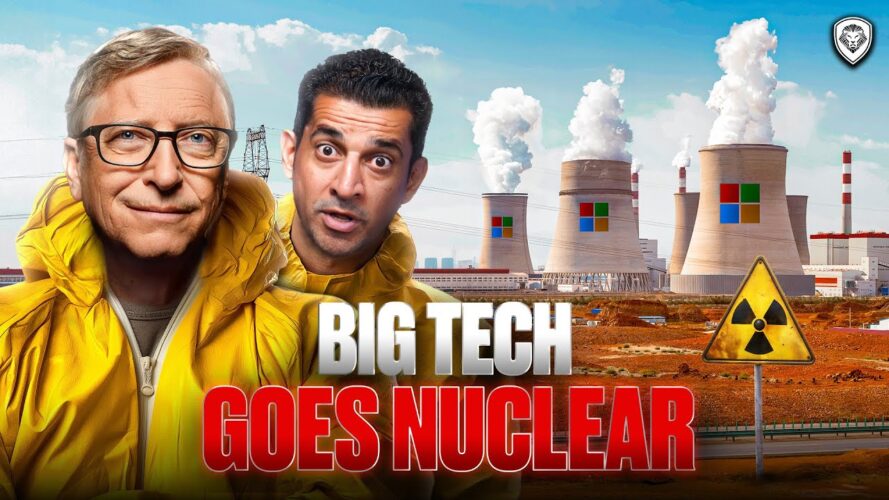After decades of anti-nuclear propaganda, major tech companies are turning to nuclear energy to meet the escalating power demands of artificial intelligence and data centers. In this explainer video, Patrick Bet-David explores why corporations like Google, Microsoft, and Amazon are suddenly reversing course and embracing a nuclear future.
Subscribe to Valuetainment for more deep dives, explainers, and motivational videos!
For decades, nuclear power was met with resistance due to safety concerns, primarily influenced by historic nuclear incidents like Chornobyl and Three-Mile Island. However, with growing energy consumption driven by AI, companies like Microsoft, Google, and Amazon are reevaluating nuclear energy for its safety, cleanliness, and efficiency compared to traditional energy sources.
According to the data, nuclear energy has far lower mortality rates and greenhouse gas emissions than fossil fuels and supposedly “eco-friendly” alternatives. Nuclear energy also boasts the highest capacity factor, meaning it operates at maximum output more consistently than other energy sources. Despite these benefits, nuclear plant construction stalled after the Chornobyl disaster, but interest has revived with new, safer nuclear technologies like Small Modular Reactors (SMRs).
Each tech giant has taken unique steps toward nuclear energy. Google partnered with Kairos Power to develop SMRs, aiming to supply 500 megawatts of clean energy by 2035. Microsoft has a 20-year agreement with Constellation Energy to restart Pennsylvania’s Three Mile Island nuclear plant by 2028, while Amazon has invested $500 million in X-energy’s advanced reactors. OpenAI’s Sam Altman has also invested in nuclear fusion research with Helion Energy to support sustainable AI development.
Learn more about the all-new VT News and subscribe today!
The growing power needs of AI are central to this shift. AI models like ChatGPT require up to ten times more power than traditional internet searches, contributing significantly to rising energy demands in data centers. Global data centers are projected to consume up to 8% of U.S. electricity by 2030, making nuclear energy an appealing option to meet sustainable energy goals.
The economic and competitive pressures pushing tech companies toward nuclear also provide significant opportunities for the world as a whole, meaning everyone can benefit from a nuclear future. As data center and AI power needs soar, the lower costs and reliability of nuclear energy offer a strategic advantage. Traditional energy sectors may resist this shift, but tech giants see nuclear as essential to remaining competitive.
But will the old guard of the energy sector stand in the way of the advent of nuclear technology? Watch this video from PBD to learn what the industry is really afraid of.


















Add comment